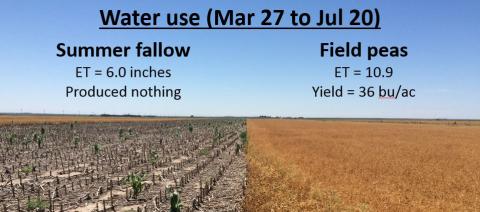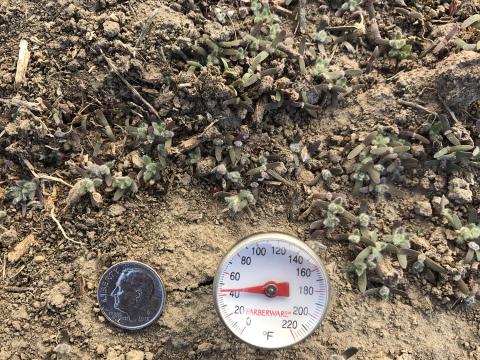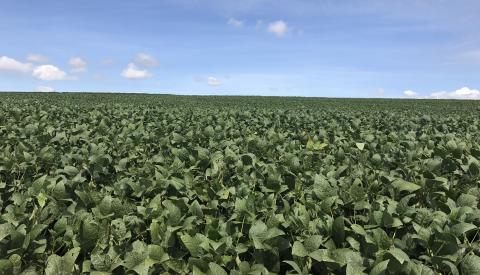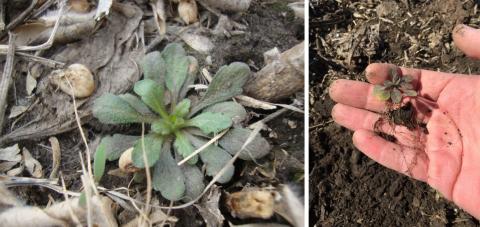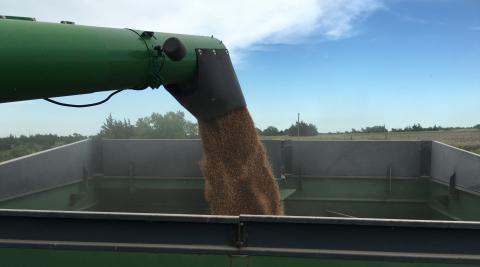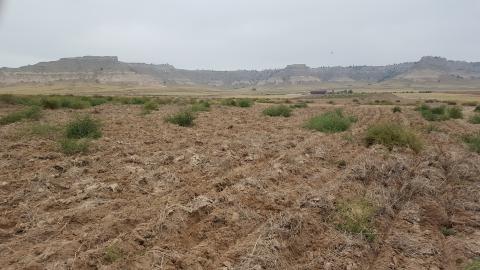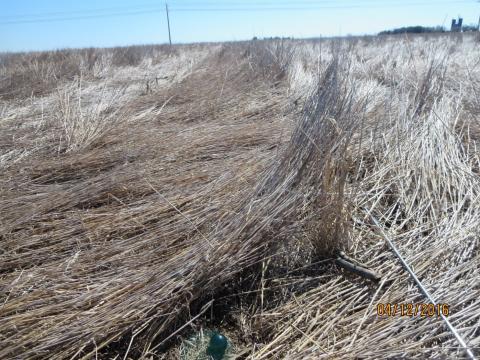Field Pea Production: Rotational Costs and Benefits
March 10, 2017
Research findings show benefits in soil nutrient cycling, water infiltration, and microbial activity from replacing fallow with grain-type field peas in a wheat-fallow rotation in western Nebraska.
Q&A: When is the Best Time for Kochia Control?
February 23, 2017
Wondering how best to manage the flush of winter annuals that came up during the recent warm spell? Are they likely to survive a return to winter conditions? This Q&A addresses these and related questions on pre-season weed management.
A Quick Look at Soybean Production In Southeast Brazil
February 8, 2017
This winter Rodrigo Werle, Nebraska Extension Cropping Systems Specialist, visited several progressive soybean growers in Brazil. See what three major practices these growers prioritize.
Fall is Optimal for Marestail Management
October 28, 2016
With corn and soybean harvest nearing completion in Nebraska this is a great time to begin scouting fields for winter annual weeds like marestail. Timing is critical to successful control of marestail, especially in no-till soybeans as many populations have evolved resistance to glyphosate and ALS-inhibiting herbicides.
Nebraska 2016 Wheat – High Yields, Low Protein
September 1, 2016
Environmental conditions, management, and genetic differences played a role in why protein content in the 2016 wheat crop was lower than normal. Wheat protein develops as the plant converts nitrogen from the soil into amino acids. See what conditions led to low protein this season and how to address it for next year's crop.
2016 Winter Wheat Varieties for Nebraska
September 1, 2016
Recommendations for identifying and selecting wheat varieties best suited to your location, based on variety trial results, and other factors to manage to achieve high yields.
Fall Weed Control Options for Winter Wheat
August 31, 2016
Weed management is a long-term battle that needs to continue even in tight margin years.Although herbicide costs may seem prohibitive, it’s important to consider the long-term implications of limiting or eliminating the use of herbicides in crop production systems.Weeds left unmanaged after wheat harvest use valuable nutrients and water needed for the following year’s crop while producing seeds to replenish the soil seed bank.
The Value of Wheat in a Crop Rotation
August 31, 2016
Wheat is an important part of many crop rotations, adding value directly and often indirectly by aiding in soil water management and weed suppression, reducing erosion, and helping manage pest cycles. Consider wheat's value to your crop production system by looking at what it contributes over multiple years of the rotation.

